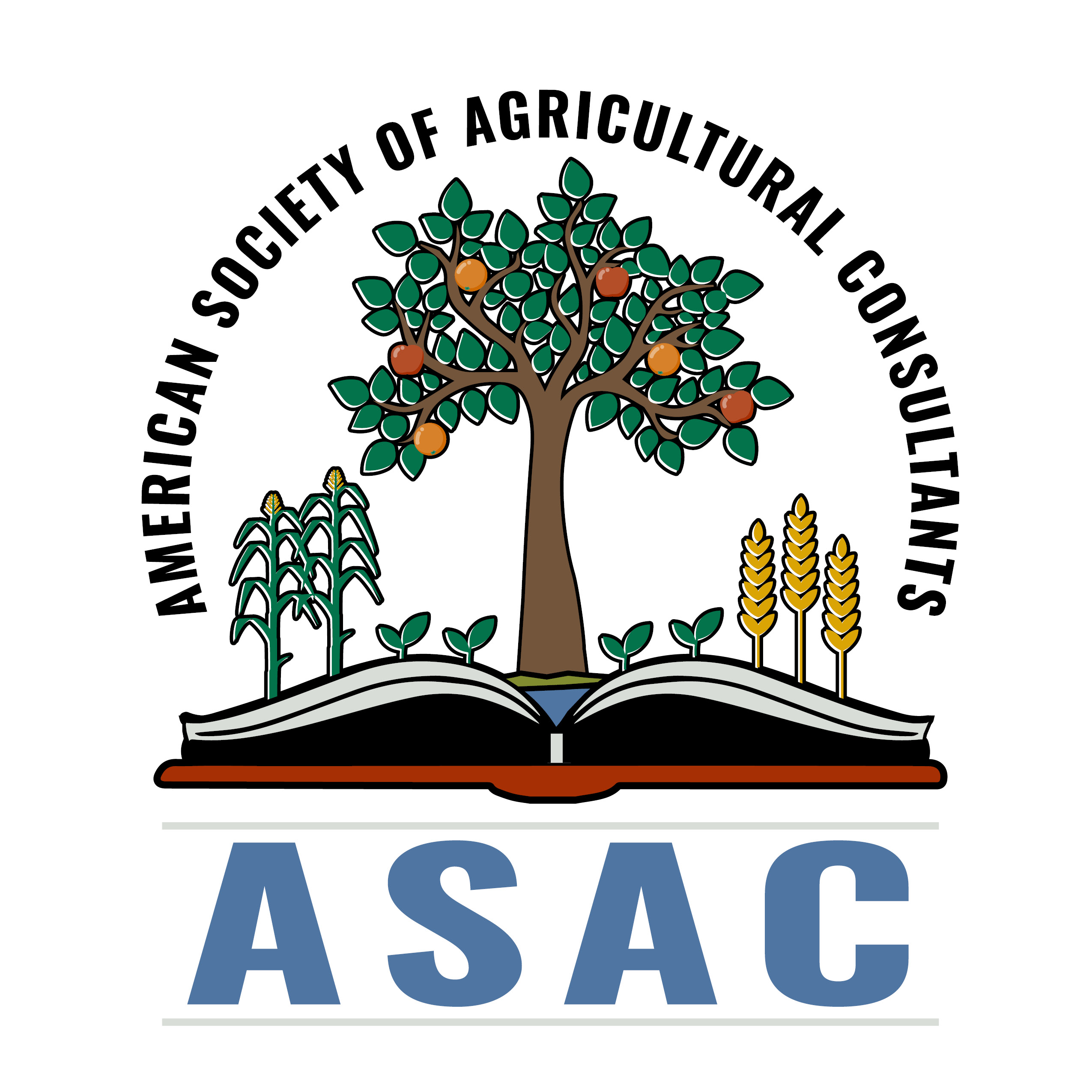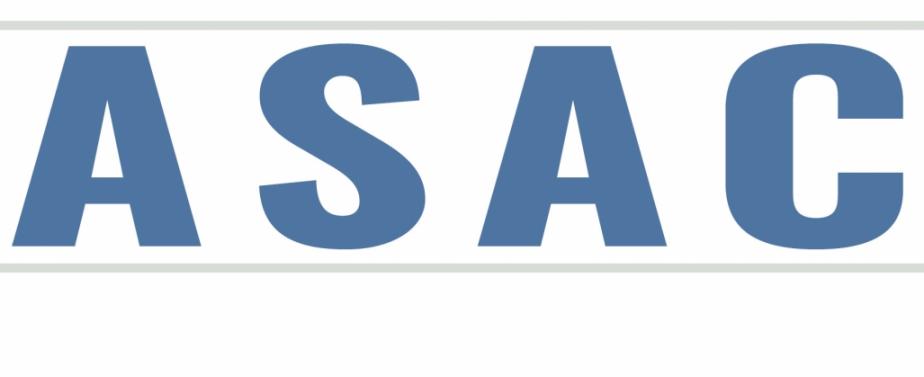Opinion: Looking Beyond Our Borders
02/21/2024
One of the focus areas of ASAC is our international presence.
For many years, several ASAC members had a strong relationship with international partners, working in Europe, Asia, Africa and the Middle East. Some have worked in Australia and South America as well. Much of the action occurred with the cooperation of the US Agency for International Development, as efforts were identified to build relationships with citizens of other countries and to foster goodwill, trade, and a common goal of democracy and freedom.
I am particularly focused on opportunities in Africa. The continent has a huge population, is rich in agriculture and natural resources, and offers much potential to the world in terms of economic growth and culture. There is much more to analyze, discuss, and discern about the continent’s history, as well as the opportunities and potential of the African continent and the people.
We need not forget our very important cross-border trade with Canada, Mexico and other countries here in the Western Hemisphere. America’s trading partners around the world desire many of the same goals as American citizens – namely, a stable, safe, affordable food production and distribution system. No doubt, our political adversaries have motives and regimes not in sync or favorable to ours. Many other areas of culture, political structure, trade and development not directly tied to agriculture are points of serious contention and strife. However, agricultural trade has been, is, and always will be the key to building positive relationships and outcomes.
The point of this article is not to discuss political structures. That’s for another time. It is to discuss people’s needs and wants for food, to feed their families safely and with quality, affordable foodstuffs and other essentials necessary to obtain them.
Many of our trading partners have the competitive advantage and the distinctive competence to provide many of the products American consumers have come to enjoy and upon which they depend for a complete diet. Trade is a two-way street.
ASAC professionals whose focus is production, i.e., the actual cultivation, processing and transportation of food, fiber, feedstuffs and fuel, are uniquely qualified to provide expertise and assistance across the globe. Certainly, there are many professionals in other countries qualified to share their expertise and knowledge, in tandem with Americans, to achieve the goals and objectives of world food security.
Pointing back to the political perspective, it is in America’s national interest to be engaged with international trade and development in a very intensive way, at the boots-on-the-ground level, developing friendships, camaraderie and trust one-on-one with fellow citizens of the world.
If America pulls back and away from engaging with other countries, helping to develop agriculture (and many other industries), our adversaries will step up (and are actively doing so) and take our place. Once they do, we will be pushed out and will have no place there to build goodwill, friendships, trade, food security, freedom and democracy.
ASAC members have an opportunity to build its international presence back to the prominence the Society once enjoyed, with influence in Washington and around the world. Policymakers, particularly Senate and House committees of agriculture and their staff members, agricultural leaders within USAID, world leaders in organizations like FAO, World Bank, etc., leaders in international consulting firms that work with USAID, and heads of agribusiness firms working internationally need to hear from ASAC, as much as they need to hear from so many other organizations working toward the same goals.
Over the last several decades our companies have focused on developing business activities in China. With its huge population and low-cost workforce resulting in our ability to bring low-cost goods to the American consumer, we have enabled China’s expansionist strategy while, at the same time, ignoring our opportunity to build the relationships with countries in Africa who actually prefer American involvement over China, Russia and other regimes adverse to freedom, democracy and capitalism. Certainly, trade with China is important. Many other political and economic aspects are intertwined in this complex relationship with China to be discussed in another article.
I challenge ASAC to focus efforts on rebuilding its international presence around the globe, with a focus on Africa. At the November 2023 ASAC Annual Conference in Fresno, California, we heard Gary Hirsch, president of Global Opportunities, Inc., deliver an impassioned presentation on the need for American engagement and involvement across the globe. His particular focus, too, is on Africa, and even more focused on sub-Saharan Africa. His parting comments still resonate with me. "If you can't feed your children, you don't necessarily care who your president is".
America’s inattention to these countries simply capitulates and hands their destinies over to our adversaries.
***********************************
This article is the opinion and perspective of the author and may or may not be consistent with those of other ASAC Members. Endorsement of specific items mentioned in the article is not an endorsement of the individual, the company or the organization from which it originates. ASAC as an organization does not advocate opinions or positions on issues.
Pete Weisenberger
Weisenberger Agricultural Services, LLC
pete.weis0956@gmail.com
One of the focus areas of ASAC is our international presence.
For many years, several ASAC members had a strong relationship with international partners, working in Europe, Asia, Africa and the Middle East. Some have worked in Australia and South America as well. Much of the action occurred with the cooperation of the US Agency for International Development, as efforts were identified to build relationships with citizens of other countries and to foster goodwill, trade, and a common goal of democracy and freedom.
I am particularly focused on opportunities in Africa. The continent has a huge population, is rich in agriculture and natural resources, and offers much potential to the world in terms of economic growth and culture. There is much more to analyze, discuss, and discern about the continent’s history, as well as the opportunities and potential of the African continent and the people.
We need not forget our very important cross-border trade with Canada, Mexico and other countries here in the Western Hemisphere. America’s trading partners around the world desire many of the same goals as American citizens – namely, a stable, safe, affordable food production and distribution system. No doubt, our political adversaries have motives and regimes not in sync or favorable to ours. Many other areas of culture, political structure, trade and development not directly tied to agriculture are points of serious contention and strife. However, agricultural trade has been, is, and always will be the key to building positive relationships and outcomes.
The point of this article is not to discuss political structures. That’s for another time. It is to discuss people’s needs and wants for food, to feed their families safely and with quality, affordable foodstuffs and other essentials necessary to obtain them.
Many of our trading partners have the competitive advantage and the distinctive competence to provide many of the products American consumers have come to enjoy and upon which they depend for a complete diet. Trade is a two-way street.
ASAC professionals whose focus is production, i.e., the actual cultivation, processing and transportation of food, fiber, feedstuffs and fuel, are uniquely qualified to provide expertise and assistance across the globe. Certainly, there are many professionals in other countries qualified to share their expertise and knowledge, in tandem with Americans, to achieve the goals and objectives of world food security.
Pointing back to the political perspective, it is in America’s national interest to be engaged with international trade and development in a very intensive way, at the boots-on-the-ground level, developing friendships, camaraderie and trust one-on-one with fellow citizens of the world.
If America pulls back and away from engaging with other countries, helping to develop agriculture (and many other industries), our adversaries will step up (and are actively doing so) and take our place. Once they do, we will be pushed out and will have no place there to build goodwill, friendships, trade, food security, freedom and democracy.
ASAC members have an opportunity to build its international presence back to the prominence the Society once enjoyed, with influence in Washington and around the world. Policymakers, particularly Senate and House committees of agriculture and their staff members, agricultural leaders within USAID, world leaders in organizations like FAO, World Bank, etc., leaders in international consulting firms that work with USAID, and heads of agribusiness firms working internationally need to hear from ASAC, as much as they need to hear from so many other organizations working toward the same goals.
Over the last several decades our companies have focused on developing business activities in China. With its huge population and low-cost workforce resulting in our ability to bring low-cost goods to the American consumer, we have enabled China’s expansionist strategy while, at the same time, ignoring our opportunity to build the relationships with countries in Africa who actually prefer American involvement over China, Russia and other regimes adverse to freedom, democracy and capitalism. Certainly, trade with China is important. Many other political and economic aspects are intertwined in this complex relationship with China to be discussed in another article.
I challenge ASAC to focus efforts on rebuilding its international presence around the globe, with a focus on Africa. At the November 2023 ASAC Annual Conference in Fresno, California, we heard Gary Hirsch, president of Global Opportunities, Inc., deliver an impassioned presentation on the need for American engagement and involvement across the globe. His particular focus, too, is on Africa, and even more focused on sub-Saharan Africa. His parting comments still resonate with me. "If you can't feed your children, you don't necessarily care who your president is".
America’s inattention to these countries simply capitulates and hands their destinies over to our adversaries.
***********************************
This article is the opinion and perspective of the author and may or may not be consistent with those of other ASAC Members. Endorsement of specific items mentioned in the article is not an endorsement of the individual, the company or the organization from which it originates. ASAC as an organization does not advocate opinions or positions on issues.
Pete Weisenberger
Weisenberger Agricultural Services, LLC
pete.weis0956@gmail.com
Post a new comment







